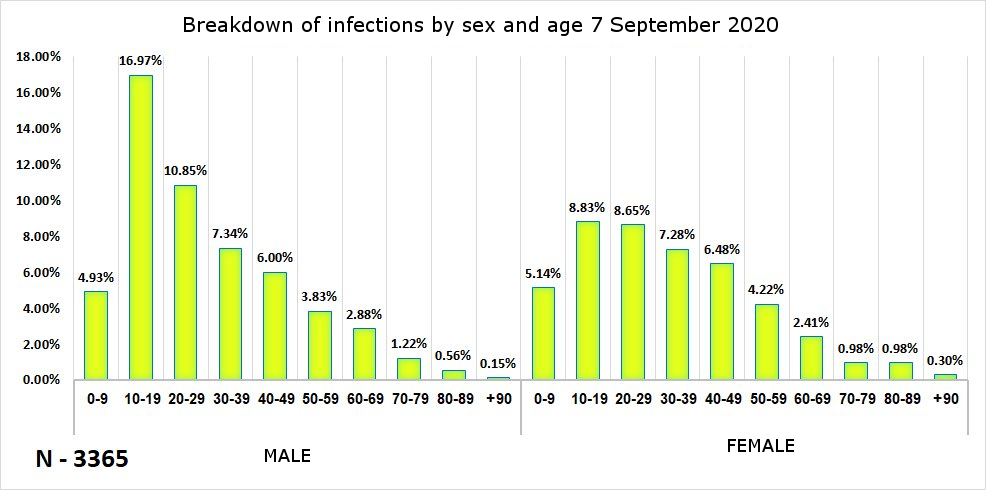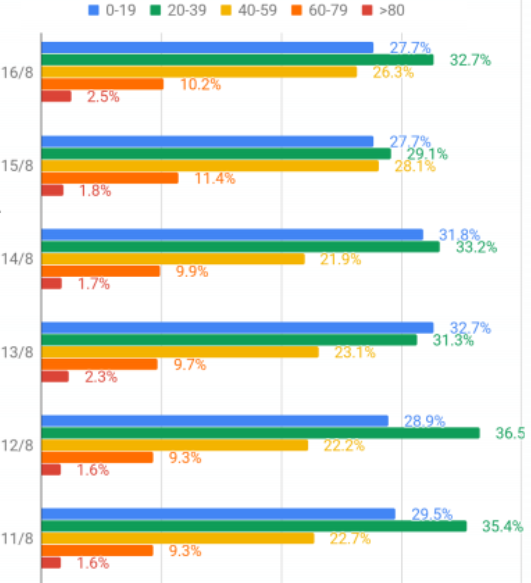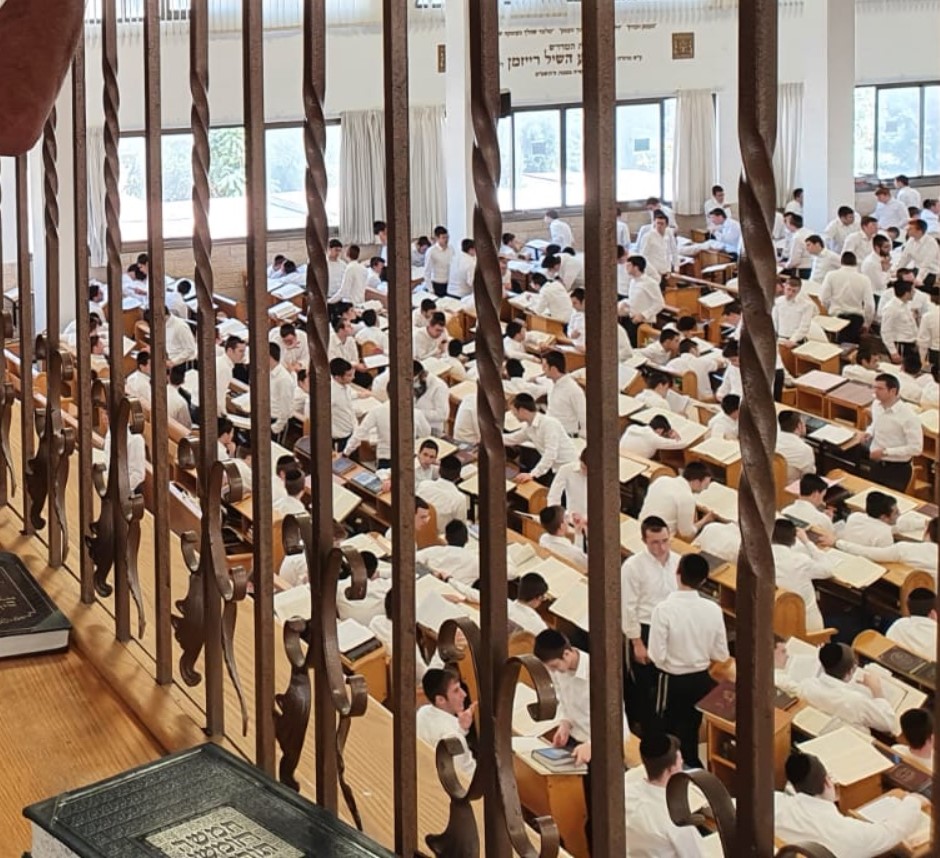Israel is now seeing about 3,500 new Covid-19 cases a day. This is partly due to increased testing (45,000 tests yesterday, a genuinely impressive number) but test positivity is still very high, so it’s pretty clear that the increase also represents a real rise in actual infections too.
There are more cases in every age group, including the elderly who are most likely to get seriously ill. The biggest, rise, though, sticks out a mile.

Above is a breakdown of the new cases testing positive on Monday 7 September. You can see that 17% of all new coronavirus diagnoses that day were males aged 10-19. That group includes 11-year-olds, high school teenagers and first-year school leavers, who in Israel are mostly drafted into the IDF.
By comparison, girls aged 10-19 made up only 8.8% of cases, pretty much the same as women aged 20-29. There’s also a smaller bump among men 20-29 (10.85%) vs women the same age (8.65%).
This is a shift. In mid-August, the more cases were detected in the 20-39 age cohort. Now, thanks to the teenage boys, 10-19 is the biggest.

Do teenage boys behave differently to teenage girls? Sure. Do those differences in behaviour significantly affect their risk of catching the coronavirus? I’m less sure about that. Maybe teenage boys wear masks less than girls, for example, or eat more at each others’ houses, but I struggle to believe that this wouldn’t apply to other age cohorts as well.
The most likely answer is that these cases are taking place in crowded residential education settings.
National-Religious Jewish boys are more likely to be educated in boarding schools than girls from the same communities, though I think it would have been too early to have detected a huge rise in cases in National-Religious schools on Monday, when they only restarted a few days prior.
Haredi yeshivot, though, restarted three weeks ago. They are often crowded both in the study hall and in the corridors, social and dining spaces, and dorms.
Haredi yeshivot are exempt from the usual rules on social distancing. In theory, students are being kept in ‘capsules’ of 50 students until Yom Kippur. In those capsules, they don’t have to keep any distancing, are exempt from masking rules etc…. and after Yom Kippur, the entire Yeshiva will be exempt from social distancing rules altogether and students hermetically sealed off from the wider public.
You can listen to the full Yeshiva plan being described here (Hebrew!):
If this plan sounds unrealistic, it’s already failing. There is no earthly way that Yeshiva students in their teens are skipping the weddings of their brothers and sisters, for example.
Anshel Pfeffer visited two yeshivot in Bnei Brak this week and saw for himself that the ‘capsules’ are only kept separate in the study hall itself (and even there they’re all sharing the same air). Outside, students can go to shops, crowd into the dining rooms, visit family and generally act however they want. The capsule system is a joke, and it will be even more of a joke once the capsules of 50 are dissolved and whole yeshivot of hundreds of students will be considered a single enormous capsule.

A police inspection of Jerusalem’s Hebron Yeshiva this week drives home this point too. A photo shared by the police shows hundreds of students, with no masks or spacing, in the study hall. I counted 105 students in this photo alone. It doesn’t look much like sealed ‘capsules’ of 50 to me. In another photo, the Rabbi accompanying the police was seen to be wearing just a plastic visor, not a legally-required mask.
I’m open to other explanations for the spike in cases among teenage boys, but sometimes the obvious answer is the right one. A big chunk of Israel’s Covid-19 cases are probably being caused by the Yeshivot.
Sometimes what seems to be the obvious answer is the only one you’re willing to hear.
I don’t have energy to hash this out again, repeat the explanations again, but you are missing a lot of very important information, and what you’ve based this on amounts to no more than your personal observations of a very narrow segment of Israeli society, probably fueled by the media.
Your article is irresponsible and only serves to increase anti-Semitism and sinas chinam.